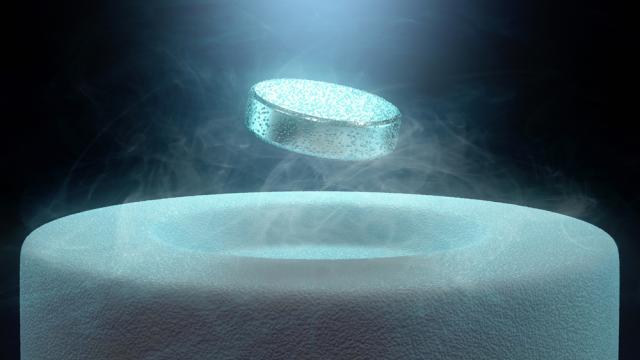The smell of rotten eggs may make you think of a nasty garbage can situation, but someday it could help power your high-speed trains. Hydrogen sulfide — the chemical compound that emits a powerful rotten egg smell — is a superconductor with enormous potential.
The compound conducts electricity with no resistance at temperatures as high as 203 kelvin ( — 70 °C), physicists reported in Nature this week.That means hydrogen sulfide is the highest-temperature superconductor known to man, besting the previous record-holder by about 40 ºC. And that matters because it’s a big step toward finding a room temperature superconductor, which could revolutionise electronics, making everyday electricity generation and transmission vastly more efficient.
Superconductors — materials that can channel electric current with no resistance — were first discovered in the early 20th century. They’re used in some of the most important technologies of the modern world, from MRI machines and particle accelerators to microwave ovens and mobile phones. But there’s one persistent problem: It takes extraordinarily low temperatures and lots of energy to form these magical materials. And some of the highest-temperature superconductors are unusual, expensive substances. An exotic, copper-containing class of compounds called “cuprates” can superconduct at 164 K ( — 109 °C) if first subjected to very high pressures.
Now, cuprates have to take a backseat to something much more pedestrian. When Mikhail Eremets and colleagues at the Max Planck Institute for Chemistry in Germany squeezed tiny amounts of hydrogen sulfide to almost 1.6 million times atmospheric pressure, the common material was transformed. It became superconductive at temperatures that actually exist (albeit in places no one would ever want to live) on the surface of the Earth. That’s a first, and it could mean that an entire class of perfectly natural, hydrogen-bearing compounds are good candidates for high-temperature superconductivity.
Some scientists are thrilled at the news: Igor Mazin of the Naval Research Laboratory, calls hydrogen sulfide “the holy grail of superconductors.” Others are keeping their shirts on until the find is independently confirmed. According to Nature News, a group at Osaka University has so far been able to reproduce the electrical but not the magnetic properties of a superconductor in hydrogen sulfide, while others groups have yet to confirm any superconductivity at all.
As for the room temperature superconductors that could propel our future high-speed trains and vastly improve MRI technology? “Theoretically they not forbidden,” Eremets told New Scientist. We’ll just have to wait and see.
[New Scientist [Nature News]
